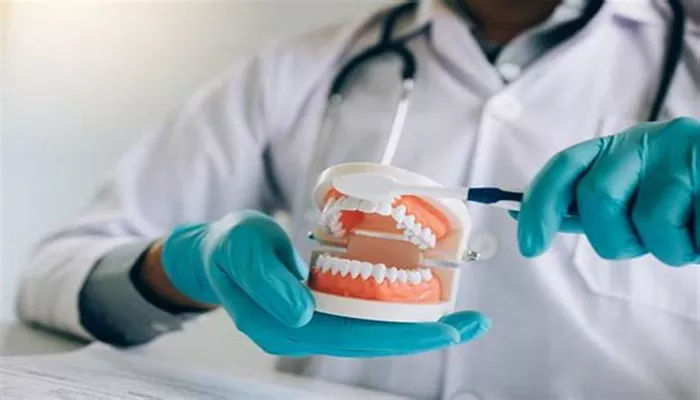Wisdom teeth, also known as third molars, typically emerge in late adolescence or early adulthood, usually between the ages of 17 and 25. While some individuals experience no issues with their wisdom teeth, others face significant complications, particularly when these teeth grow horizontally. This article aims to explore the implications of horizontally growing wisdom teeth, detailing the symptoms, potential health risks, and necessary treatments.
What Are Horizontally Growing Wisdom Teeth?
Horizontally growing wisdom teeth occur when these molars do not have enough space in the jaw to erupt properly. Instead of emerging vertically, they grow at an angle, often pressing against adjacent teeth.
This condition is commonly referred to as impacted wisdom teeth. The impact can lead to various dental and health issues if not addressed promptly.
Symptoms of Horizontally Growing Wisdom Teeth
Identifying the symptoms associated with horizontally growing wisdom teeth is crucial for early intervention. Common signs include:
Aching Pain: Individuals may experience persistent pain in the jaw or around the impacted tooth. This discomfort can radiate to adjacent teeth and areas of the jaw.
Gum Swelling: Swollen and reddened gums are common indicators. The gum tissue surrounding the impacted tooth may become inflamed due to pressure and irritation.
Bad Breath: Food particles can get trapped around the impacted tooth, leading to bacterial growth and resulting in persistent bad breath.
Stiff Jaw: Difficulty opening the mouth wide can occur due to swelling and pain in the jaw muscles and nerves.
Fever: Inflammation from infection may trigger a fever as the body responds to the underlying issue.
SEE ALSO: How to Clean Removed Wisdom Teeth: A Step-by-Step Guide
Health Risks Associated with Horizontally Growing Wisdom Teeth
The consequences of horizontally growing wisdom teeth extend beyond mere discomfort. If left untreated, several serious health issues can arise:
1. Tooth Decay
The awkward positioning of horizontally growing wisdom teeth makes them difficult to clean properly. This can lead to plaque buildup, resulting in cavities not only in the wisdom tooth itself but also in adjacent teeth. The decay can spread rapidly if not addressed.
2. Gum Disease
The inflammation caused by impacted wisdom teeth can lead to gum disease, specifically pericoronitis, an infection of the gum tissue surrounding the tooth. Symptoms include swelling, redness, and pain in the gums, which can escalate if left untreated.
3. Damage to Adjacent Teeth
As horizontally growing wisdom teeth exert pressure on neighboring molars, they can cause misalignment and damage.
This pressure may lead to wear on enamel or even fractures in adjacent teeth.
4. Cysts and Tumors
In some cases, fluid-filled sacs known as dentigerous cysts can develop around impacted wisdom teeth. These cysts can cause bone loss or damage if they grow large enough, potentially leading to surgical intervention for removal.
5. Chronic Pain and Discomfort
The ongoing pressure from horizontally growing wisdom teeth can result in chronic pain that affects daily activities such as eating and speaking. This discomfort often necessitates professional dental treatment.
6. Infection
Due to their location and difficulty in cleaning, horizontally impacted wisdom teeth are prone to infections that can spread throughout the mouth and potentially into other areas of the body.
Treatment Options for Horizontally Growing Wisdom Teeth
Addressing horizontally growing wisdom teeth typically involves extraction, especially when complications arise. Here are some common treatment options:
1. Monitoring
In some cases where there are no immediate symptoms or complications, dentists may recommend monitoring the situation through regular check-ups and X-rays.
2. Extraction
If symptoms arise or complications develop, extraction is often necessary. The procedure involves removing the impacted tooth under local anesthesia or sedation, depending on the complexity of the case.
3. Antibiotics
If an infection is present, dentists may prescribe antibiotics before or after extraction to help manage infection and inflammation.
4. Pain Management
Post-extraction pain management may include over-the-counter pain relievers or prescribed medications to alleviate discomfort during recovery.
Preventive Measures
Maintaining good oral hygiene is crucial for preventing complications associated with horizontally growing wisdom teeth:
Regular dental check-ups allow for early detection of potential issues.
Proper brushing and flossing techniques help minimize plaque buildup around difficult-to-reach areas.
Dentists may recommend X-rays periodically to monitor the position of wisdom teeth.
Conclusion
Horizontally growing wisdom teeth pose significant challenges that can impact overall oral health. The potential for tooth decay, gum disease, damage to adjacent teeth, cyst formation, chronic pain, and infections underscores the importance of timely intervention. If you suspect your wisdom teeth are growing improperly or experience any related symptoms, it is essential to consult with a dental professional promptly.
Related topics:

